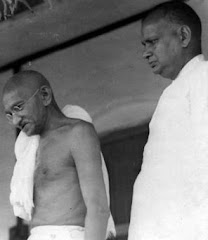“When something big (violent) was happening, we wanted to be able to deploy peace teams as quickly and as effectively as the military deploys their troops and as the police deploys officers.” - Mary Hanna, MPT
The following is an excerpt, read the full article by the Metta Center for Nonviolence, featuring MPT, here: http://mettacenter.org/blog/building-movement-peace-teams-training-coming-city-near.
[MPT] follows a unique model of short-term deployments to both domestic and international situations. Domestic deployments, she describes, are typically very short (1-3 days) and often revolve around single events—past examples have included everything from Ku Klux Klan rallies to Gay Pride parades. Participants in domestic teams need to have attended at least eight hours of training with MPT, and larger deployments are often broken up into smaller autonomous teams for increased flexibility. International deployments are longer, ranging from roughly three weeks to about three months. Preparation for these team members is much more intensive and includes regionally specific training, strategy-building and personal/team awareness exercises, and even simulated experiences such as those one might encounter during the deployment. Mary explains that the goal of all this is to send people who are personally centered, able to work together cohesively, and aware of the general dynamics (at the very least) of the situation they’re about to enter – the hope being that such a team could be a help rather than a hindrance to the local community.
I was curious about the three-month upper limit to international deployments, and Mary helpfully points out that the most common site for MPT international deployments has been the West Bank—and that three months is the longest duration for which one can obtain a visa to travel to the West Bank. This deployment length may shift as MPT engages with communities in different parts of the world, but it is likely to remain relatively short in comparison to the international peace team deployments of other organizations. Mary recognizes that this (the shorter duration) poses certain challenges to the way peace teams operate on the ground, but she argues that the more condensed timeframe also lowers some of the barriers to participation in a team and thus allows for broader investment in the concept. She adds that in this context the capacity for continuity, relationship-building, and on-the-ground familiarity comes from peace team members called “anchors” who return to a region repeatedly (and at overlapping times)—allowing MPT to maintain a constant presence in the community over the course of different peace team deployments.
Efforts to scale up this concept of peace teams have brought MPT to the next stage of its journey as a founding member of the Shanti Sena Network of North American peace teams. This network is composed of a variety of organizations across the U.S. and Canada, and it was inspired by Gandhi’s idea of a shanti sena, or ‘peace army.’ Mary explains that “when something big (violent) was happening, we wanted to be able to deploy peace teams as quickly and as effectively as the military deploys their troops and as the police deploys officers.” To do this, the groups need to develop a standardized training and a network to mobilize people in response to violence—to get those trained teams to the places where they are needed, and to do it quickly. They are beginning by coordinating their curricula to include a basic training that all agree is foundational for peace team work, and they hope that this coordination and cooperation in training will also start to build up the networks of relationships that can later be used to mobilize and dispatch trained teams to situations where violence threatens. Over the long haul, they hope to bring Gandhi’s vision of a ‘peace army’ to life in North America.
- Published Posted on February 5, 2014 by the Metta Center for Nonviolence
Note: If you are interested in getting trained the skills and strategies for building a national movement of local peace teams, we have good news: MPT Is going to be going on a nationwide tour to do just that.
You can find out more about where they will be at this link, and contact them if you would like to host them in your town.







No comments:
Post a Comment